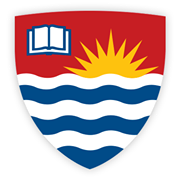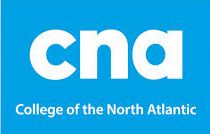- Location
- Thunder Bay, Ontario, Canada
- Bio
-
Ayman Diyab received the Master's Degree of Business Administration, the Teaching Practicum Certificate and the Ph.D. Degree in Software Engineering from Lakehead University, Thunder Bay, Ontario, Canada. He is currently an Assistant Professor at the Department of Software Engineering, Lakehead University. He has a long academic & industrial experience and received many awards & scholarships, including the IEEE Best Presentation Award, IEEE International Conference on Cloud and Big Data Computing; Excellence in Teaching Award; Dean's Award for Excellence in Strategic Management; Jeff Llewellyn Memorial Graduate Scholarship in Business; Alumni Association Silver Jubilee Graduate Scholarship; Ontario Graduate Scholarship; Harold S. Braun Memorial Graduate Scholarship. His research interests include health informatics, AI, machine learning and mathematical modeling. His research is published in top-tier scientific journals/conferences, including IEEE, Elsevier and SAGE journals.
- Portals
-
-
 Thunder Bay, Ontario, Canada
Thunder Bay, Ontario, Canada
-
- Categories
- Data analysis Information technology
Skills
Achievements
Latest feedback
Experience feedback
Experience feedback
Team feedback
Recent experiences
Object-Oriented Graphical User Interface (Lakehead University)
ESOF-2570-WA
Do you have a programming or GUI challenge you would like to tackle? In this project, students working in teams will use object-oriented approaches to solve Graphical User Interface (GUI) problems. Topics include object-oriented concepts including inheritance, polymorphism, exception handling, graphics and GUI design techniques. Types of projects that students can work on: Projects that require Object-Oriented and Java programming components.
Software Safety and Security
ESOF-4250
Students will work with your company to identify your needs and provide actionable recommendations, based on their in-depth research and analysis. Project activities that students can complete may include, but are not limited to: Demonstrated ability to analyze software risks, safety hazards, security attacks and potential exposure. Demonstrated ability in considering privacy, security and/or safety issues in the design of software systems. Demonstrated ability in the use of software and network security tools and techniques. Graduate can identify the legal and regulatory requirements relevant to an engineering activity Graduate can differentiate between ethics, morals, values and law, and apply ethical reasoning to professional dilemmas, including Professional Codes of Ethics.
Software Construction and Evolution
ESOF-5232-WA
Would you like to understand better how to manage your software from conception to implementation? In this project, students working in teams will explore and analyze concepts, methods and techniques for supporting the construction, evolution, and maintenance of software systems, including machine learning systems and programs. Topics include the construction of software components identified and described in design documents; code implementation and reuse; software testing and Software Quality Assurance; methods and techniques to allow a software system to evolve and survive. Projects that students can work on: Software engineering and computer programming projects.
Numerical Methods and Modeling
ESOF-3558-WA
Do you have an engineering problem you would like to solve? In this project, students working in teams will explore and analyze numerical method algorithms for modeling and solving engineering problems with a predictable error rate. Topics include numerical calculus, roots, optimization, polynomial interpolation, integration, differentiation, initial value problems, boundary value problems, and the software development of these algorithms. Projects that students can work on include engineering projects that have numerical solution components using MATLAB programming and solvers.
